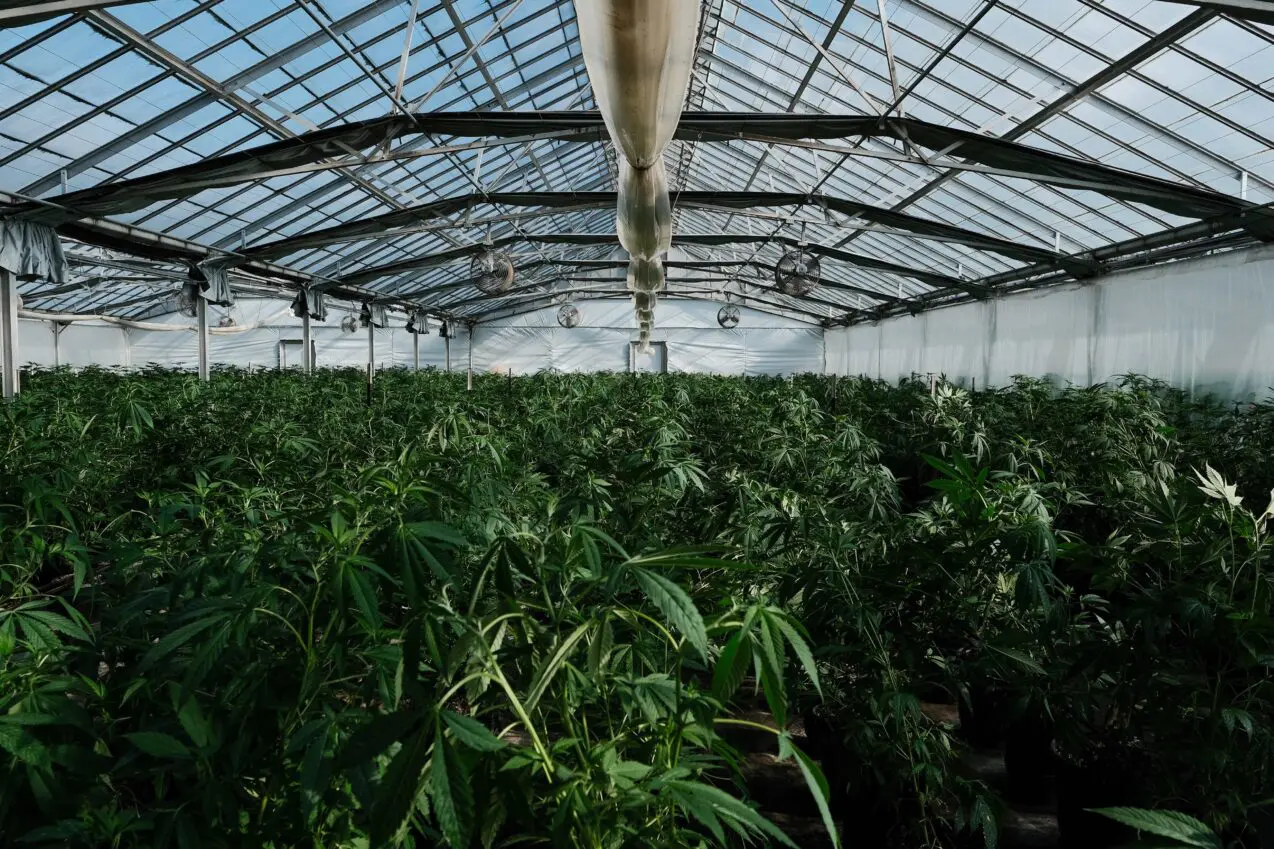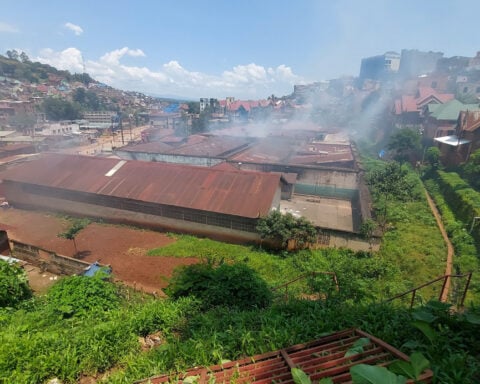California law enforcement agencies have seized $544 million worth of illegal marijuana this year, but local sheriffs say these operations barely impact state's flourishing black market marijuana trade.
Two major state programs recently announced their combined seizures, with the California Department of Justice program collecting $353 million worth of illicit plants and a governor's office task force seizing an additional $191 million.
Local law enforcement officials, however, report these numbers represent only a small fraction of the illegal cannabis market. Siskiyou County Sheriff Jeremiah LaRue said his county alone produces an estimated 12 million to 16 million illicit plants annually.
"If we examine the statistics, it is clear that these operations are not effectively or aggressively putting a dent into the illegal market," LaRue said.
The Department of Justice's Eradication and Prevention of Illicit Cannabis program, known as EPIC, has seized about 77,000 cannabis plants across 36 counties this year. According to LaRue, if EPIC focused solely on Siskiyou County for an entire year, it would eliminate just 6% of the estimated local black market.
Mendocino County Sheriff Matthew Kendall highlighted the scale of illegal operations in his jurisdiction, noting that the 35-square-mile Round Valley area contains approximately one million illegal marijuana plants.
"Don't get me wrong, I love when those guys [state law enforcement officers] show up to help," Kendall said, "but I would need 50 police officers for 50 days to even begin putting a dent in it."
A study by cannabis economics research firm Whitney Economics found that illegal sales comprise more than half of California's marijuana market. The Riverside County Sheriff's Department marijuana enforcement team reported to the Los Angeles Times no reduction in their local black market over the past two years.
Law enforcement leaders point to several factors maintaining the illegal market's strength: high taxes and regulations for legal producers, minimal consequences for illegal operators, and limited access to legal marijuana across much of California.
The state charges a 15% excise tax on marijuana sales, with additional local marijuana taxes. A recent study by GreenWave Advisors, a cannabis industry research firm, revealed legal cannabis companies owe more than $730 million in back taxes to the state. Companies no longer in business account for 72% of this debt.
"California did a horrible job of incentivizing [illegal] cultivators to convert over," said Beau Whitney, founder of Whitney Economics. "They taxed them heavily, they regulated them heavily, they couldn't make any money."
More than half of California counties prohibit marijuana sales, creating vast areas where residents cannot legally purchase cannabis. According to law enforcement officials, this restriction drives consumers toward the black market.
San Bernardino County Sheriff's Lt. Larry Lopez explained the economic incentives for illegal operations. "From the criminal mindset, there is minimal downside and massive upside to cultivating marijuana illegally and selling it on the black market," he said.
Current penalties provide little deterrence. Selling or transporting marijuana without required licenses carries only a misdemeanor charge. While enhanced penalties exist for tax evasion and environmental crimes, LaRue said most illegal cultivation offenses lack sufficient consequences to discourage production.
Enforcement efforts face additional challenges as raids typically result in arresting laborers rather than operation owners. "It is a frequent strategy for the black-market organizers to hide behind the labor force and remain shielded from law enforcement," LaRue said. "It is rare that higher-level organizers are anywhere near the cultivation areas."
A 2022 L.A. Times investigation found the illegal marijuana market threatens legal growers' financial stability, increases community violence, causes environmental damage, and subjects workers to dangerous conditions.
The Department of Cannabis Control acknowledged these challenges in a statement, noting their awareness of economic pressures facing the legal market. A department spokesperson referenced Gov. Gavin Newsom's recent calls for policymakers to prioritize solutions reducing burdens on the legal market, addressing competition from unregulated sources, and improving access to regulated products.
"DCC looks forward to continued partnership with policymakers as they respond to this call and develop policies that aim to tackle the challenges that are inherent to transitioning an unregulated market to a regulated space," the spokesperson said.
California voters approved recreational marijuana through Proposition 64 in 2016. The ballot measure promised "to tax the growth and sale of marijuana in a way that drives out the illicit market." Eight years later, law enforcement officials say this goal remains unmet.
Local sheriffs continue supporting raids despite their limitations and welcome state assistance. However, they emphasize that meaningful change requires policy reforms addressing both legal cultivators' narrow profit margins and minimal penalties for illegal operations.
"We can chop it down, and, by golly, it pops up again the next day," Mendocino County Sheriff Kendall said.
Kendall urged state leadership to consider input from local law enforcement. He said that solving the problem requires "the architects of these laws — the governor, the legislators" to heed what is being told by "the carpenters, and that's the sheriffs and the police chiefs."

 Bregman's $120 million, 3-year deal with Red Sox includes $60 million deferred, paid from 2035-46
Bregman's $120 million, 3-year deal with Red Sox includes $60 million deferred, paid from 2035-46
 Police arrest apparent leader of cultlike 'Zizian' group linked to multiple killings in the US
Police arrest apparent leader of cultlike 'Zizian' group linked to multiple killings in the US
 Four senior aides to New York mayor Adams to resign, media report
Four senior aides to New York mayor Adams to resign, media report
 UK PM Starmer says U.S. must provide security guarantee for Ukraine to deter Russia
UK PM Starmer says U.S. must provide security guarantee for Ukraine to deter Russia
 Airbus to delay A350 freighter amid supply problems, sources say
Airbus to delay A350 freighter amid supply problems, sources say
 Congo rebels promise security in Bukavu after looting
Congo rebels promise security in Bukavu after looting
 What is a polar vortex? US gets a taste of the Arctic this week
What is a polar vortex? US gets a taste of the Arctic this week
 Mark Ruffalo wants you to remember that ‘every petty dictator…they always lose’ in the end
Mark Ruffalo wants you to remember that ‘every petty dictator…they always lose’ in the end
 Mexican musical legend Paquita la del Barrio dies at 77
Mexican musical legend Paquita la del Barrio dies at 77
 California law enforcement agencies have seized $544 million worth of illegal marijuana this year, but local sheriffs say it doesn't change the market.
California law enforcement agencies have seized $544 million worth of illegal marijuana this year, but local sheriffs say it doesn't change the market.






